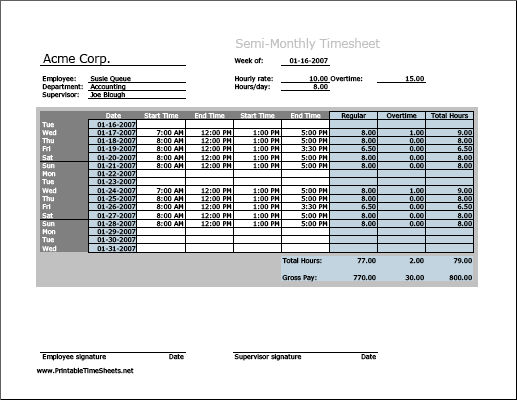
But in some cases, your care team may prescribe medication like rivastigmine or memantine, which are typically used for managing Alzheimer’s disease symptoms. Depending on your symptoms, you might also undergo a brain scan to rule out other concerns, like a stroke or tumor, or brain bleeding caused by physical trauma. You may also get a brain scan to rule out other potential conditions, like stroke, tumor, or a brain bleed caused by physical trauma.
- To tackle some of these limitations, we used repeat data spanning nearly three decades to investigate the association between alcohol consumption and risk of dementia, assessed through linkage to electronic health records for all participants irrespective of their continued participation in follow-up.
- Many people with alcohol-related ‘dementia’ have to wait in hospital for a long time before they can get specialist care.
- If you’re buying a bottle or can, it’s helpful to check the ABV content on the label.
- Long-term alcohol use may lead to Alzheimer’s disease (AD), a type of dementia that affects more than six million Americans.
This week’s poll

Participants provided information about their drinking habits, with researchers tracking dementia cases through hospital and death records over 13.2 years. The average alcohol consumption recorded was 13.6 units per week, with nearly half the participants exceeding the UK’s recommended limit of 14 units per week. To tackle some of these limitations, we used repeat data spanning nearly three decades to investigate the association between alcohol consumption and risk of dementia, assessed through linkage to electronic health records for all participants irrespective of their continued participation in follow-up. We examined associations of dementia with alcohol consumption in midlife, alcohol dependence, hospital admission for can alcohol cause dementia alcohol related disease, and trajectories of alcohol consumption over 17 years.
Treatment for Alcohol-Related Dementia
- This article reviews what alcohol-related dementia is, its possible causes, symptoms, treatment, and more.
- In summary, while a number of studies have reported experimental findings to explain risk reduction through alcohol consumption for vascular dementia, data regarding the impact of alcohol on Alzheimer´s pathophysiology is more contradictory.
- It can be difficult to stop using alcohol, even if it’s causing alcohol-related dementia signs to occur.
- Alcohol can damage the brain in several different ways, but the most common are the following.
Some of the common symptoms of alcohol-related ‘dementia’ may make it harder for a person to take part in an alcohol treatment programme. These symptoms can include denial, lack of insight and being impulsive. Unlike Alzheimer’s disease or vascular dementia, alcohol-related ‘dementia’ is not certain to get worse over time. With the right treatment and support, there is often a good chance that it will stop getting worse or improve. Most prospective cohort studies have follow-up periods of two to three years (see Table 2).
Role of cardiometabolic disease in association between midlife alcohol consumption and dementia
Some of the genetic markers used for alcohol consumption are problematic as their associations with average volume of drinking and with heavy drinking occasions in overall light drinkers point in opposite directions (80; see also the discussion following 84). Furthermore, cohort studies in twins may contribute to identifying genetic variations 85. This literature review indicates that chronic alcohol misuse accelerates brain aging and contributes to cognitive impairments, including those in the mnemonic domain also affected in Alzheimer’s disease. First, different definitions of alcohol consumption may lead to heterogeneity. Second, we cannot exclude the potential influences of including former drinkers, who may quit drinking due to underlying diseases and have a high risk of dementia, in the reference group due to data restrictions. Another limitation is considerations of the inconsistence of the adjusted confounders in included studies; we cannot exclude the potentially spurious inverse association caused by some confounders.

Alcohol and Cialis: Risks, Side Effects & Treatment
For instance, research suggests that a five-year history of drinking 35 alcoholic beverages a week for men and 28 for women presents a “sufficient” risk for the development of ARD. Alcohol has a direct effect on brain cells, resulting in poor judgment, difficulty making decisions, and lack of insight. In short, alcohol misuse over many years can cause dementia in some cases. Nutrition problems, which often accompany long-time alcohol misuse, can be another contributing factor to alcohol-related dementia, since parts of the brain may be damaged by vitamin deficiencies.
- The end stage of alcoholism is linked with severe brain damage as well as liver problems that can add additional symptoms of brain fog, confusion, and delirium.
- Some people may develop behavioral symptoms or problems with memory and decision-making before experiencing motor effects of alcoholic dementia, but the pattern of symptoms doesn’t necessarily follow a particular sequence.
- Nutrition problems, which often accompany long-time alcohol misuse, can be another contributing factor to alcohol-related dementia, since parts of the brain may be damaged by vitamin deficiencies.
- The Recovery Village aims to improve the quality of life for people struggling with substance use or mental health disorder with fact-based content about the nature of behavioral health conditions, treatment options and their related outcomes.


